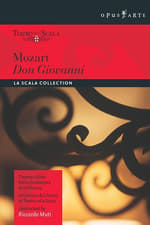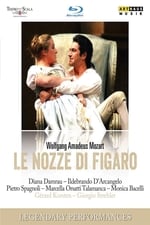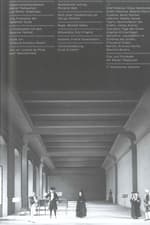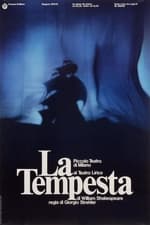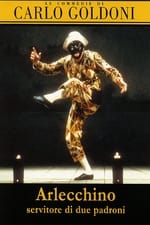Información personal
Conocido por Dirección
Créditos conocidos 13
Sexo Masculino
Fecha de nacimiento 14 de agosto de 1921
Fecha de defunción 25 de diciembre de 1997 (76 años)
Lugar de nacimiento Barcola, Trieste, Friuli-Venezia Giulia, Italy
También conocido como
- -
Puntuación del contenido
100
¡Sí! ¡Buena pinta!
Iniciar sesión para informar de un problema
Biografía
Giorgio Strehler (14 August 1921 – 25 December 1997) was an Italian stage director, theatre practitioner, actor and politician.
He was one of the most significant figures in Italian theatre during his lifetime, described by Mel Gussow as "the grand master of Italian theater" and "one of the world's boldest and most innovative directors." He co-founded Italy's first and most significant repertory company, the Piccolo Teatro of Milan, and the Union of the Theatres of Europe.
As a Socialist, Strehler served as Member of the European Parliament between 1984 and 1984, representing North-West Italy. He switched parties to the Independent Left, for which he was a Senator from 1987 for the 1992, representing Lombardy.
Strehler was born in Barcola, Trieste; His father, Bruno Strehler, was a native of Trieste with family roots in Vienna and died when Giorgio was only three. His maternal grandfather, Olimpio Lovrich, subsequently became his father figure. Olimpio was one of the finest horn players of his day and the impresario of the Teatro Comunale Giuseppe Verdi, Trieste's Opera House. When he was seven, his grandfather died and he moved to Milan with his mother and grandmother.
As a child, Giorgio was not impressed by theater. He found it "false" and decided it did not have the power to stir one's emotions as film did. His opinions changed one hot summer night while on his way to the cinema. He noticed a sign advertising the air-conditioning posted by the Odeon Theater. He walked in for some relief from the weather to see a performance of Carlo Goldoni's Una delle ultime sere di Carnevale being given by a company from Venice. He went every evening for the next few days to see more plays by Goldoni. Newly inspired by the theater, he applied and was accepted to the theater school Accademia dei Filodrammatici.
During the war he went into exile in Switzerland. With Geneva's Compagnie des Masques he directed the world premiere of Albert Camus's Caligula. After the war he became a theater critic for Milano Sera but he preferred making theater rather than writing about it. It was at this time that he started the Piccolo Teatro di Milano with Paolo Grassi. It opened on 17 May 1947 in the auditorium of the Broletto Cinema with Maxim Gorky's The Lower Depths. A few days later they staged Carlo Goldoni's long forgotten Arlecchino: Servant of Two Masters commedia dell'arte, which would go on to become the longest running play in Italian theater. In that same year he also directed Giuseppe Verdi's La traviata at La Scala, the first of many opera productions he would direct.
Giorgio Strehler focused on theater that was culturally relevant. He did not want to "pay an abstract homage to culture" or "to offer a mere distraction... passive contemplation". Instead both Giorgio and Paolo agreed that theater was "a place where people gather to hear statements that they can accept or reject". ...
Source: Article "Giorgio Strehler" from Wikipedia in English, licensed under CC-BY-SA 3.0.
Giorgio Strehler (14 August 1921 – 25 December 1997) was an Italian stage director, theatre practitioner, actor and politician.
He was one of the most significant figures in Italian theatre during his lifetime, described by Mel Gussow as "the grand master of Italian theater" and "one of the world's boldest and most innovative directors." He co-founded Italy's first and most significant repertory company, the Piccolo Teatro of Milan, and the Union of the Theatres of Europe.
As a Socialist, Strehler served as Member of the European Parliament between 1984 and 1984, representing North-West Italy. He switched parties to the Independent Left, for which he was a Senator from 1987 for the 1992, representing Lombardy.
Strehler was born in Barcola, Trieste; His father, Bruno Strehler, was a native of Trieste with family roots in Vienna and died when Giorgio was only three. His maternal grandfather, Olimpio Lovrich, subsequently became his father figure. Olimpio was one of the finest horn players of his day and the impresario of the Teatro Comunale Giuseppe Verdi, Trieste's Opera House. When he was seven, his grandfather died and he moved to Milan with his mother and grandmother.
As a child, Giorgio was not impressed by theater. He found it "false" and decided it did not have the power to stir one's emotions as film did. His opinions changed one hot summer night while on his way to the cinema. He noticed a sign advertising the air-conditioning posted by the Odeon Theater. He walked in for some relief from the weather to see a performance of Carlo Goldoni's Una delle ultime sere di Carnevale being given by a company from Venice. He went every evening for the next few days to see more plays by Goldoni. Newly inspired by the theater, he applied and was accepted to the theater school Accademia dei Filodrammatici.
During the war he went into exile in Switzerland. With Geneva's Compagnie des Masques he directed the world premiere of Albert Camus's Caligula. After the war he became a theater critic for Milano Sera but he preferred making theater rather than writing about it. It was at this time that he started the Piccolo Teatro di Milano with Paolo Grassi. It opened on 17 May 1947 in the auditorium of the Broletto Cinema with Maxim Gorky's The Lower Depths. A few days later they staged Carlo Goldoni's long forgotten Arlecchino: Servant of Two Masters commedia dell'arte, which would go on to become the longest running play in Italian theater. In that same year he also directed Giuseppe Verdi's La traviata at La Scala, the first of many opera productions he would direct.
Giorgio Strehler focused on theater that was culturally relevant. He did not want to "pay an abstract homage to culture" or "to offer a mere distraction... passive contemplation". Instead both Giorgio and Paolo agreed that theater was "a place where people gather to hear statements that they can accept or reject". ...
Source: Article "Giorgio Strehler" from Wikipedia in English, licensed under CC-BY-SA 3.0.
Dirección
|
|||||||||
|
|||||||||
|
|||||||||
|
|||||||||
|
|||||||||
|
Interpretación
|
|||
|
|||
|
|||
|
|||
|

